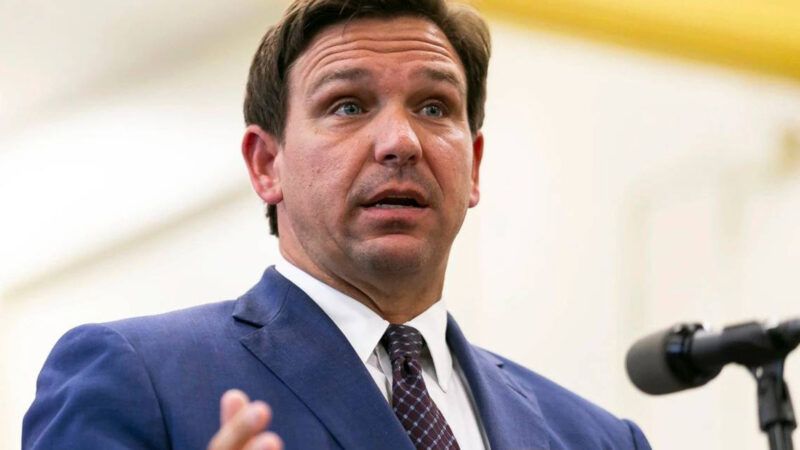DeSantis Vetoed a Social Media Age-Verification Law, but That Doesn't Mean He Won't Sign a New One
A law forcing kids off social media sites is still likely coming to Florida.

Last week, Florida Gov. Ron DeSantis vetoed a bill that would have enacted sweeping restrictions on minors' ability to use social media. However, DeSantis' veto appears to be less about a commitment to keep the state out of parenting decisions—like whether to let a teenager on social media—and more about the bill's likelihood of being overturned after a legal challenge.
The original bill, House Bill 1, would have banned those younger than 16 from making an account on most social media sites and required companies to delete accounts that they believe could be—but not necessarily confirmed to be—owned by users under 16. The bill would also have required social media sites to use a third-party to verify users' age. Companies that violated the law could have been fined up to $50,000 per incident.
The bill was broadly popular and passed the Florida Senate with a 30–5 vote. But DeSantis vetoed the bill last week. In a post to X (formerly Twitter), DeSantis wrote that he vetoed the bill to make way for a superior proposal.
"I have vetoed HB 1 because the Legislature is about to produce a different, superior bill," DeSantis wrote on Friday. "Protecting children from harms associated with social media is important, as is supporting parents' rights and maintaining the ability of adults to engage in anonymous speech."
The alternate bill, H.B. 3, keeps many of the provisions as H.B. 1, though the updated bill does not include a provision requiring the deletion of possibly underage accounts. Additionally, an amendment recently approved by the state Senate would allow 14- and 15-year-olds to make social media accounts with a parent's permission but keep a blanket ban for younger children.
Even with a lowered age restriction, Florida's newest social media age verification bill will still likely face legal challenges, as several other states that have enacted similar laws have. While forcing social media companies to kick kids off their platforms has become an increasingly popular proposal across state legislatures, such restrictions almost inevitably end up violating minors' First Amendment rights to access social media content.


Show Comments (35)